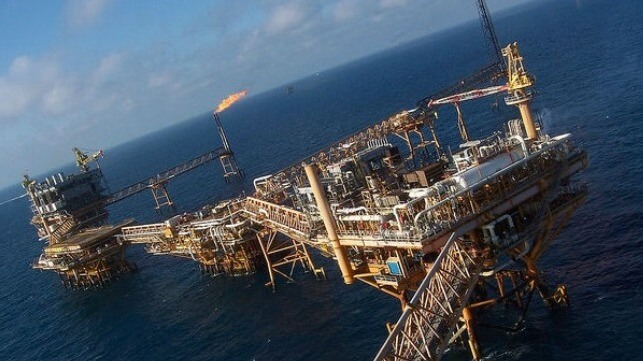Study: UK Offshore Methane Leakage is Five Times the Official Estimate

Climate-warming methane emissions from offshore oil and gas production in the UK are likely far higher than the British government's estimates, according to a new study from Princeton University's Center for Policy Research on Energy and the Environment (C-PREE).
Methane, marketed as natural gas, has a global warming potential about 80 times higher than CO2 over the first 20 years of its lifespan. It is emitted during oil and gas production, transportation and processing, and is also produced in quantity by livestock and by landfills. It is the second-largest contributor to global warming after carbon dioxide, but it breaks down on a relatively short timeline - so cutting methane emissions is a quick way to slow down global warming in the short term. In recognition of its importance, over 100 nations have pledged to cut methane emissions by 30 percent by 2030.
According to a new study by researchers at Princeton University and Colorado State University, the UK's current methods for estimating methane emissions from the offshore oil and gas sector are "systematically and severely" undercounting the true level. The study finds that up to five times more methane is released into the atmosphere on the UK Continental Shelf than the government currently reports.
The study covered all stages of offshore E&P, and it took a close look at the UK's standard emissions factors for various activities, like flaring, processing, onboard power generation and pipeline transfer. The research team found that the UK's estimates rely on emissions factors that would tend to underrepresent the true values. Some are outdated; some come from industry research that is not available to the public; and some are generic values from global averages. Few can be adjusted to account for weather conditions or procedural changes that could affect each activity's emissions levels. The government estimation method also leaves out leakage from idle rigs.
Riddick and Mauzerall created an updated estimation technique based on factors from the scientific literature, as well as direct boat-based measurements of methane concentration in the air around North Sea platforms. Their final result suggests that emissions are five times higher than the UK government's estimates.
Many other nations use similar methods of counting, so "this severe underestimation is likely not confined to the UK alone," the authors suggested.
“We hope our work will facilitate improved emission estimates and reductions not only from the UK but also from other countries producing methane from oil and gas extraction,” said Denise Mauzerall, a co-author and core faculty member of the Center for Policy Research on Energy and the Environment at Princeton University.
